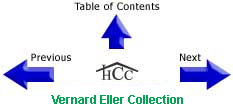Innocence Through the Blood

Canto XII
"Grace enough that man may have
Who sins anew, if he repent;
But with sorrow and signing he must crave
And abide the pain that is consequent.
But by reason of right that none will waive,
Saved evermore is the innocent.
It is a judgement God never gave
That the guiltless to damnation be sent.
The guilty one may contrition present
And, through mercy, to grace take flight;
But he who toward guile hath never bent,
As innocent is safe and right.

XII:2
"Right, thus, I know 'tis in this case,
Two kinds God saveth by his skill:
The righteous man shall see his face;
The faultless fellow come to him still.
The Psalter says thus in a passage:
'Lord, who shall climb up they high hill,
Or rest within they holy place?'
Himself to answer quickly will:
'Who with harmful hands hath not done ill,
Who is of heart both clean and light.'
He shall step in stable style;
The innocent's ever safe by right.

XII:3
"The righteous man also, for certain,
He shall approach that pretty pile,
Who taketh not his life in vain
Nor gouges his neighbor thru any guile.
Regarding such a one, Solomon saw plain,
How Wisdom doth him honor compile;
By ways full straight she'd him constrain
And show him the kingdom of God awhile,
As one who saith, 'Lo, you lovely isle!
Thou mayest it win if thou be sprite.'
Yet assuredly, without peril,
The innocent is saved by right.

XII:4
"Regarding the righteous yet saith someone
David in Psalter, if e'er thou it spied
'Lord, 'gainst thy servant judgment bring none;
There's no one living 'fore thee justified.'
Thus, to court when thou shalt come,
Where all our causes shall be tried,
Allege thy right, thou mayest be undone
By this very speech I have applied.
Yet he who on that red rood died,
Whose hands the nails did cruelly smite,
By innocence and not by right.

It is truly amazing (amazing grace) to find coming out of medieval Roman Catholicism as radical a teaching of salvation by grace as we've just witnessed--and that something more than a century before Martin Luther and the Protestant Reformation could have been any help. That the poet spends this much detail and emphasis upon his argument is proof enough that he sees it as running against the theological current of his day. He apparently could read his New Testament as well as Luther could his. And perhaps the teaching comes through with that much more force and purity for the fact that it is not the product of one of our Protestant churches--Protestant churches founded on the premise of "salvation by grace" but within which we aren't really sure we want to give up all claim to the penny we know good and well we've earned, that is ours by right.
But retrace the poet's thought. Writing when he did, he probably had to argue the true innocence of infants at greater length than we would find necessary. We are well enough convinced on that one.
Yet he goes on to insist, with good scriptural support, that such childlike innocence (righteousness) must be the mark of everyone who comes in. Thus he picks up on the great biblical demand for holiness and ethical living--and in the process apparently heads directly back into works-righteousness (as frequently seems to be the case within the New Testament itself).
But then, with the present stanza, it all comes together. Yes, only the righteous can come in. However, that requisite righteousness is simply unattainable by us on our own--"there's no one living 'fore thee justified." So if thou wouldst come alleging thy innocence as a right, thou mayest in fact, thou willst) be undone; you have no right to Christian comfort and blessing.
However, there is One who on the red rood died and who can and will give thee innocence (give thee of his, innocence)--if thou wilt accept it as "grace" rather than as "right."
And so, the poem will continue, we can come into the kingdom only as children--only as did the Pearl Maiden herself. We must have that quality of innocence and purity; yes. But no more than it is with children is it with us an innocence of our achieving, of our merit, and innocence that gives us any sort of right. No, ours (as theirs) must be the innocence that is the gift of grace. This is the way to the kingdom; and this is the only way to Christian comfort.

XII:5
"Whoever rightwisely now can read,
Look in the Book and be aware
How Jesus walked the ancient mead
And folk their bairns all to him bear
For hap and health that from him proceed,
To touch their kin they pray him fair.
His disciples, with blame, would them impede
And with their reasons full many o'erbear;
But Jesus bids them have a care:
'Make way! The children to me I invite;
Such to the kingdom of heaven are heir.'
The innocent ever are safe by right.


|
Copyright (c) 1983 |
